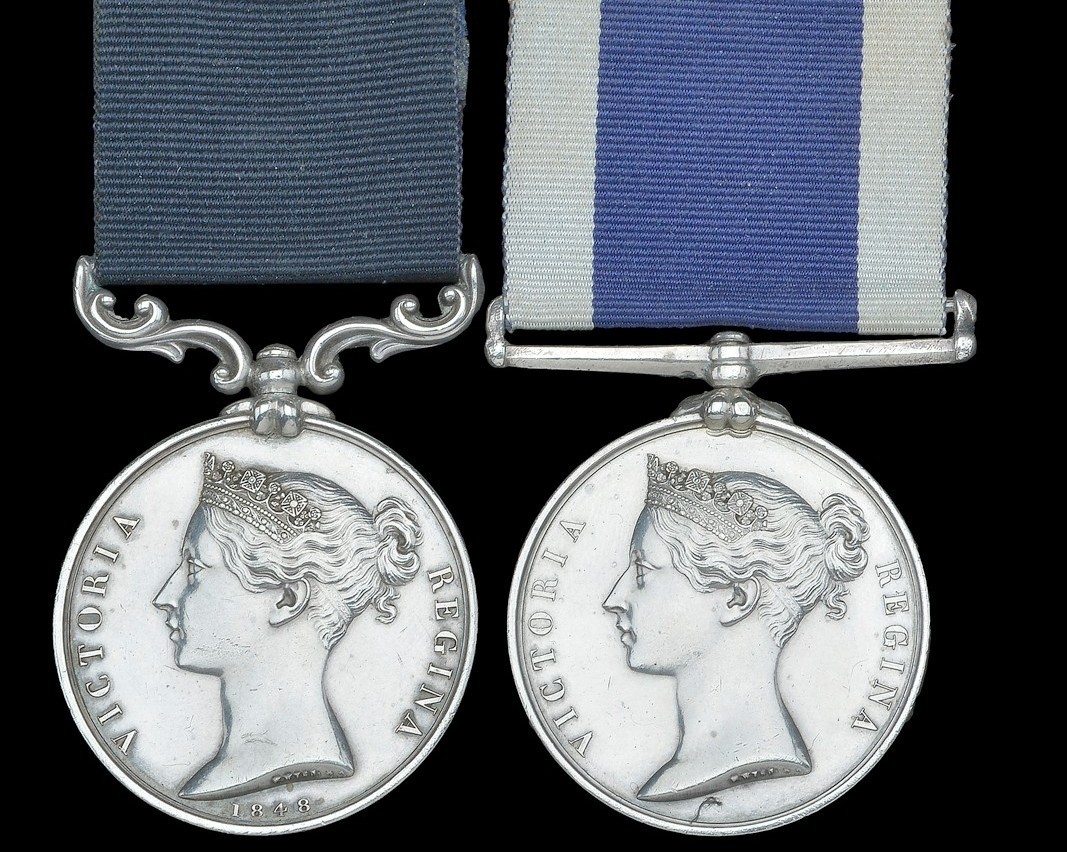Medals awarded to a Scot who protected Charles Darwin from pirates and natives on his historic Beagle expedition are expected to fetch £10,000 at auction next week.
Sergeant James A Bute joined the Royal Navy as a marine private in 1820 and circumnavigated the globe with Darwin in the 1830s.
Bute accompanied him on missions to retrieve specimens, but he was armed to hunt, and was also called upon to repel attacks from natives.
The north-east born soldier was awarded the Royal Marine Meritorious Service Medal (MSM) in 1848 in recognition of his remarkable service.
The medal, and his good conduct gong for 32 years unblemished service, are expected sell for up to £10,000 at Dix Noonan Webb’s sale in London on Wednesday.
Will Bennett, spokesman for Dix Noonan Webb, said: “James Bute took part in one of the most important voyages in human history.
“Bute helped ensure the safety of Darwin and the crew of the HMS Beagle so that they could return home with their findings.
“What is particularly fascinating is that he would almost certainly have accompanied Charles Darwin on his forays to collect specimens, which ultimately changed our view of human evolution.”
James Adolphus Bute, born in Aberdeen in 1800, was apprenticed as a blacksmith before he enlisted into the Royal Marines.
He rose to the rank of sergeant but reverted to private at his own request to join HMS Beagle’s second survey expedition from December 1831 to October 1836.
Bute accompanied The Origin of the Species writer Darwin on some of his expeditions and his skills as a blacksmith would have been invaluable in helping to box specimens sent back to London as the voyage progressed.
But he was also called on to fight.
In May 1832, at Rio de Janeiro, Beagle’s marines and seamen were ordered to help the civil powers to put down a slave-hunting incident, and in Tierra del Fuego in the Beagle Channel they were attacked by natives.
He was also present in the Falklands when Beagle’s presence was challenged by Argentinians.
Bute received the Meritorious Service Medal with a £5 annuity, subsequently increased to £10.
He died at St Peter Port on the island Guernsey in 1877.
Bute’s rare medals will be sold in one lot along with the Arctic Exploration pair awarded to his son, Sergeant George Henry Bute.
George Bute was born at Woolwich just before his father left for sea in 1831.
He joined the Royal Marines in 1840 as a drummer boy and served 20 years before being discharged as a sergeant in 1860.
Among his adventures, he served in the Arctic Expeditions in the search for Sir John Franklin.
